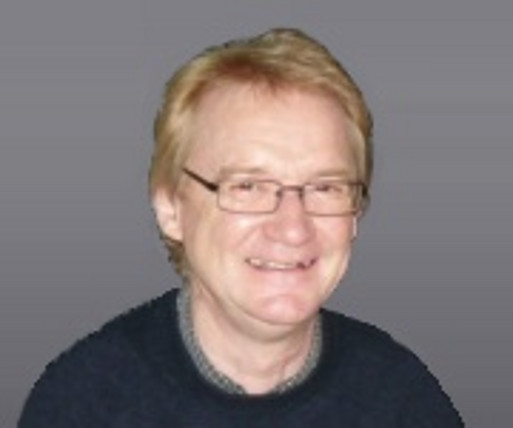Univ.-Prof. Dr. rer. nat. Edgar Schmitt

General Information
- eschmitt@uni-mainz.de
- Current position
- W2-Professor
Academic Education
- 1976 - 1983
- Biology (Diploma), Johannes Gutenberg University Mainz
Scientific Degrees
- Habilitation
- Venia legendi for Immunology, Institute for Immunology at the University Medical Center of the Johannes Gutenberg University Mainz, 1997, E. Rüde
- Doctoral thesis
- "magna cum laude", Institute for Immunology at the University Medical Center of the Johannes Gutenberg University Mainz, 1986, E. Rüde
Professional Career
- 2011 - present
- W2 Professor for "Cellular immunology", Institute for Immunology at the University Medical Center of the Johannes Gutenberg University Mainz
- 2003 - present
- Deputy head, Institute for Immunology at the University Medical Center of the Johannes Gutenberg University Mainz
- 1999 - 2003
- Acting head, Institute for Immunology at the University Medical Center of the Johannes Gutenberg University Mainz
- 1986 - 1999
- Postdoctoral Fellow, Institute for ImmunologyInstitute for Immunology at the University Medical Center of the Johannes Gutenberg University Mainz, Prof. E. Rüde
Honours and Other Activities
- 2013 - 2014
- Speaker of the "Transregional Collaborative Research Center (TRR) 52: Transcriptional programming of individual T cell subsets"
- 2008 - 2012
- Deputy Speaker of the "Transregional Collaborative Research Center (TRR) 52: Transcriptional programming of individual T cell subsets"
- 2007 - present
- Member of the executive board of the of the "Forschungszentrum für Immuntherapie" (FZI) at the Johannes Gutenberg University Mainz
- 1997 - present
- Lecturer, Institute for Immunology at the University Medical Center of the Johannes Gutenberg University
Selected Publications
- Ulges A, Klein M, Reuter S, Gerlitzki B, Hoffmann M, Grebe N, Staudt V, Stergiou N, Bohn T, Brühl T-J, Muth S, Yurugi H, Rajalingam K, Bellinghausen I, Tuettenberg A, Hahn S, Reißig S, Haben I, Zipp F, Waisman A, et al. (2015) Protein kinase CK2 enables regulatory T cells to suppress excessive TH2 responses in vivo. Nat. Immunol. 16: 267–275. *) Authors contributed equally
- Huang LR, Wohlleber D, Reisinger F, Jenne CN, Cheng RL, Abdullah Z, Schildberg FA, Odenthal M, Dienes HP, van Rooijen N, Schmitt E, Garbi N, Croft M, Kurts C, Kubes P, Protzer U, Heikenwalder M, Knolle PA (2013) Intrahepatic myeloid-cell aggregates enable local proliferation of CD8+ T cells and successful immunotherapy against chronic viral liver infection. Nat Immunol. 14(6):574-83
- Staudt V, Bothur E, Klein M, Lingnau K, Reuter S, Grebe N, Gerlitzki B, Hoffmann M, Ulges A, Taube C, Dehzad N, Becker M, Stassen M, Steinborn A, Lohoff M, Schild H, Schmitt E* & Bopp T* (2010) Interferon-regulatory factor 4 is essential for the developmental program of T helper 9 cells. Immunity 33: 192–202. *) contributed equally
- Bopp T, Becker C, Klein M, Klein-Hessling S, Palmetshofer A, Serfling E, Heib V, Becker M, Kubach J, Schmitt S, Stoll S, Schild H, Staege MS, Stassen M, Jonuleit H & Schmitt E (2007) Cyclic adenosine monophosphate is a key component of regulatory T cell-mediated suppression. J. Exp. Med. 204: 1303–1310
- Bopp T, Palmetshofer A, Serfling E, Heib V, Schmitt S, Richter C, Klein M, Schild H, Schmitt E* & Stassen M* (2005) NFATc2 and NFATc3 transcription factors play a crucial role in suppression of CD4+ T lymphocytes by CD4+ CD25+ regulatory T cells. J. Exp. Med. 201: 181–187. *) contributed equally
- Jonuleit H, Schmitt E, Kakirman H, Stassen M, Knop J & Enk, AH (2002) Infectious tolerance: Human CD25+ regulatory T cells convey suppressor activity to conventional CD4+ T helper cells. J. Exp. Med. 196(2):255-60.
- Jonuleit H, Schmitt E, Stassen M, Tuettenberg A, Knop J & Enk A (2001) Identification and functional characterization of human CD4+CD25+ T cells with regulatory properties isolated from peripheral blood. J. Exp. Med. 193:1285-1294
- Jonuleit* H, Schmitt E*, Schuler G, Knop J, & Enk A. Induction of human IL-10-producing, non-proliferating CD4+ T cells with regulatory properties by repetitive stimulation with allogeneic immature dendritic cells. (2000) J. Exp. Med. 192:1213-1222. *) contributed equally.
- Schmitt E, Germann T, Goedert S, Hoehn P, Huels C, Koelsch S, Kühn R, Müller W, Palm N & Rüde E (1994) IL-9 production of naive CD4+ T cells depends on IL-2, is synergistically enhanced by a combination of TGF-ß and IL-4, and is inhibited by IFN-γ. J. Immunol. 153:3989-3996
- Schmitt E, van Brandwijk R, Van Snick J, Siebold B & Rüde, E (1989) TCGF III/P40 is produced by naive murine CD4+ T cells but is not a general T cell growth factor. Eur. J. Immunol. 19: 2167-2170